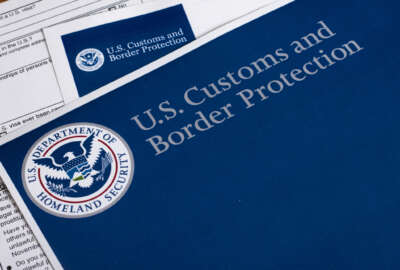Return-to-office review: The latest from Congress, agency leaders and employees
With the federal return-to-office conversation always in flux, Federal News Network wants to keep you up-to-date on what it all means for federal employees.
Editor’s Note: Want to learn more? Here’s what we know so far about agencies’ return-to-office plans. And here’s a look at all of Federal News Network’s return-to-office coverage.
The tug-of-war over returning to the office has only continued to intensify for more than a year now — and this April was an exceptionally busy month for news about the federal workplace.
The Office of Management and Budget vowed to hold agencies accountable until they reach full compliance with a 50% in-the-office expectation. But in one direction, the push from House Republicans calls for even higher in-office numbers across government. And on the other side, employees at agencies like the departments of Justice and Education are pushing back.
Federal News Network is reviewing what happened throughout the month of April, keeping you up-to-date on the latest return-to-office news and conversations, and what it all means for federal employees.
April’s top return-to-office news
- Despite a push for more collaborative in-office work, employees said in reality, many offices have limited spaces for effectively hosting team meetings. Federal News Network’s survey of more than 6,300 employees showed close to even numbers for those who found office space either sufficient, insufficient or somewhere in between.
- Why do feds have to wake up earlier, commute to work and sit at a desk all day? And why aren’t federal leaders’ rationales for returning to the office lining up with many feds’ actual experiences? In Federal News Network’s survey, a majority said senior leadership had not clearly explained the purpose of returning to the office.
- The telework data currently available from agencies has been a major sticking point for Congress in the return-to-office debate. Earlier in April, a pair of bipartisan senators introduced the Telework Transparency Act, calling on agencies to report more detailed, timely information on their federal telework policies.
By the numbers: Hybrid schedules across agencies
In their words: Employees, lawmakers and unions
“There are going to be times that you have to do things in person — people understand that they’re professionals, and they’re expected to meet the requirements of their job. It was understood that we have demanding jobs requiring us to be in the office very regularly, but AUSAs across the country just came to really appreciate the flexibility and balance that some amount of routine telework brought to their lives.”
— Adam Hanna, vice president, National Association of Assistant U.S. Attorneys
“Clearly, these employees know how much more effective they can be when they show up in person. We just wish they had the same level of dedication to serving Americans that they do to serving themselves … Agencies are still ‘not where they need to be’ on returning employees to the office. If your employees can show up to the office to protest, they can show up to the office to work.”
— Sen. Joni Ernst (R-Iowa) and Rep. Scott Franklin (R-Fla.)
“We’re more productive in our work for citizens and it is more cost-effective for us to work at home. What would they be sending us to the office for? And to do it … bypassing the union, without giving the union the opportunity to negotiate any change. They’re just sending it out as if it was already bargained and already settled.”
— Sheria Smith, Local 252 president, American Federation of Government Employees
A running list of return-to-office announcements
Copyright © 2024 Federal News Network. All rights reserved. This website is not intended for users located within the European Economic Area.
Drew Friedman is a workforce, pay and benefits reporter for Federal News Network.
Follow @dfriedmanWFED






